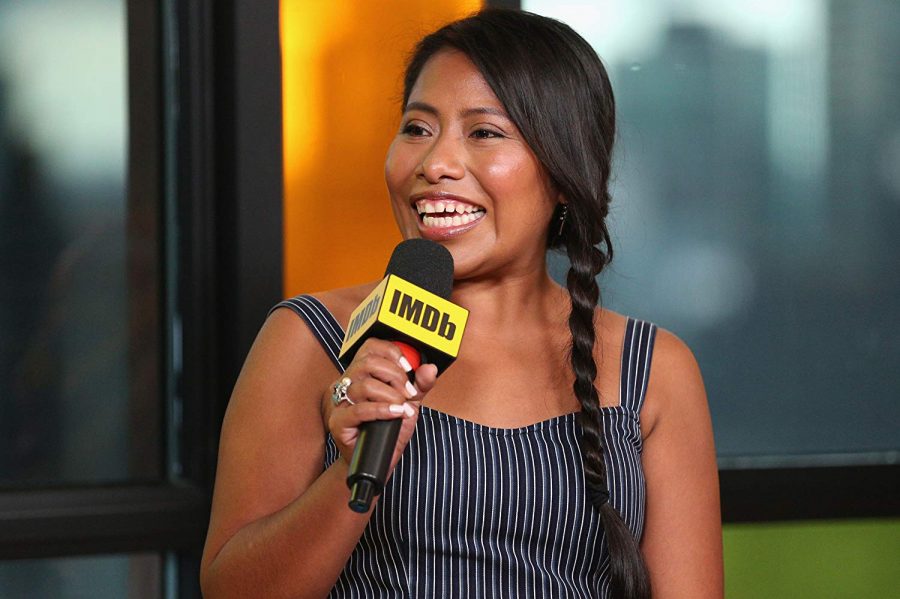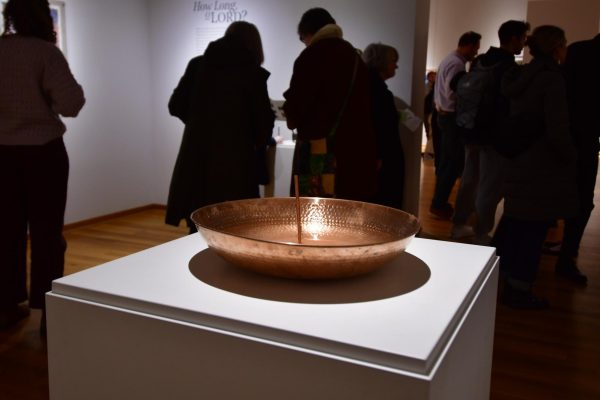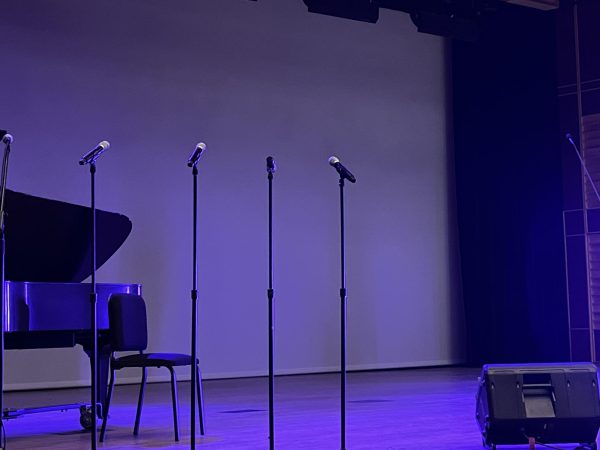Yalitza Aparicio: the icon that nearly didn’t happen
If you haven’t yet heard of the Netflix original film “Roma,” you will soon. For one, it’s managed to find its way into at least a couple other Chimes articles prior to this one, and for good reason. But right now, the focus of our admiration is Yalitza Aparicio, the young novice actress nominated for an Academy Award for her role in “Roma,” making her the first indigenous Mexican woman ever nominated for an Oscar. During her very first ever appearance on “The Late Show with Stephen Colbert,” with the help of a translator, Aparicio told the audience how she found herself there.
Picture this: Alfonso Cuaron, director of box office hits like “Gravity” (Sandra Bullock, George Clooney) and “Harry Potter and the Prisoner of Azkaban,” is holding auditions in your small Mexican town for a role in his newest movie. He’s been holding auditions for the past year and has yet to find his leading lady. You’re a newly trained school teacher with no interest in a Hollywood career; you don’t even know who he is. You don’t know there are auditions, but as luck would have it, your sister has always wanted to be an actress, and she drags you to the audition (she would audition herself but alas, she is pregnant and must therefore live vicariously through you). You’re terribly camera shy but audition anyway. You have nothing better to do at the time. And against all odds, with no prior acting experience and an expressed aversion to cameras, Cuaron convinces you to be his leading lady.
This is how Aparicio stumbled into the role that would lead to her historical nomination. It goes without saying that listening to stories with indigenous persons’ mouthpieces isn’t a strong suit of Hollywood, which is perhaps one of the reasons Cuaron decided to direct this project through his own production company.
The story is a semi-autobiographical account of Cuaron and his nanny growing up, and as such Cuaron held this project near and dear to his heart. During an interview with “The Guardian,” Cuaron says that they had been casting for about a year and nobody had felt quite right until he met Yalitza.
“With Yalitza, there was this amazing sense of familiarity; this mix of intelligence and warmth. Then I was anxious because Yalitza said she was not interested, so there were another couple of weeks of sweating until she said yes.”
The burden of representation is heavy, and will be for a very long time in popular media. According to Cuaron, when Aparicio was featured on the cover of “Vogue Mexico,” another landmark achievement for indigenous Mexican women, “the amount of racist commentary about [it] on Twitter” was unbelievable. One can only imagine how hard it is to step out into that reality when you’re camera shy to begin with and have to battle social media on top of it. I’m sure these are fears she had going into the project, and she is to be commended for stepping into that spotlight anyway, and serving as an inspiration to countless indigenous Mexican women.






